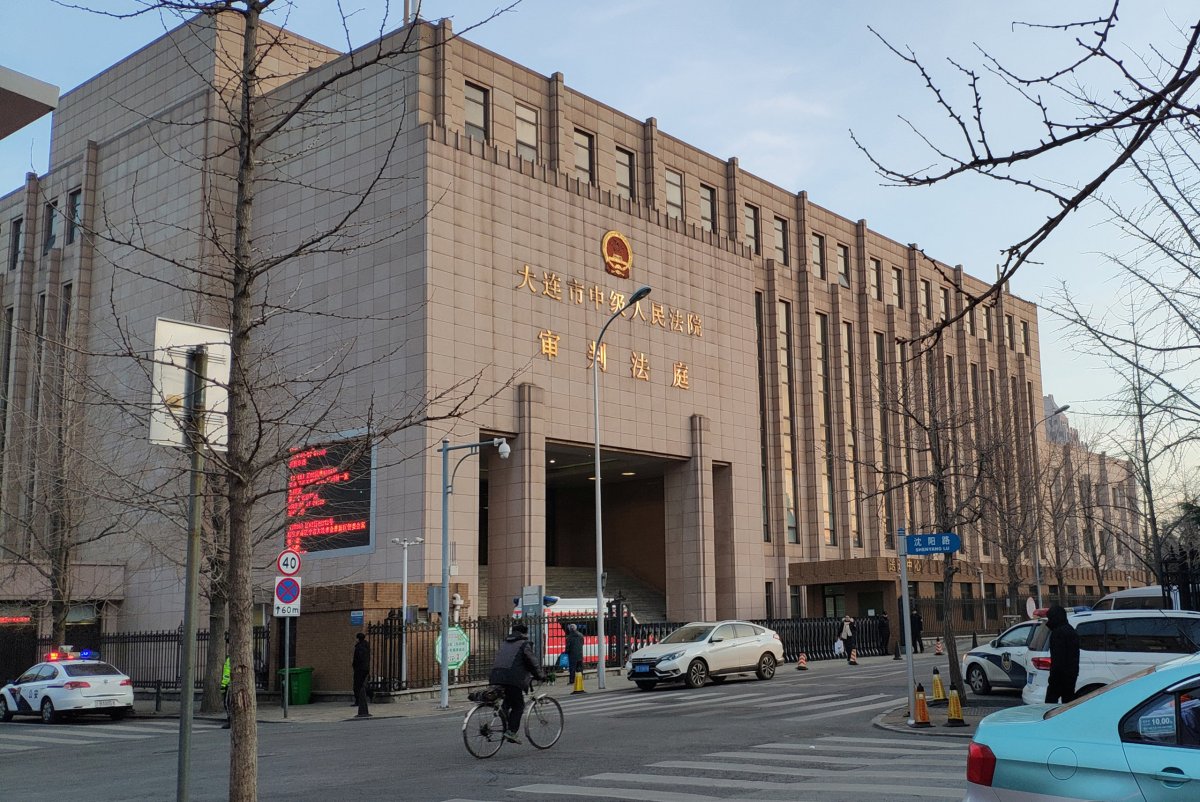By Philip Wen, Christian Shepherd and David Ljunggren
BEIJING/OTTAWA (Reuters) – A Chinese court on Monday sentenced a Canadian man to be executed for drug smuggling, prompting Canada’s Prime Minister Justin Trudeau to accuse China of using the death penalty arbitrarily.
The ruling, and Trudeau’s reaction, could aggravate already sour relations between Beijing and Ottawa following the arrest of a Chinese executive in Canada and China’s subsequent detention of two Canadians.
The Dalian Intermediate People’s Court in China’s Liaoning province re-tried Robert Lloyd Schellenberg, who had appealed his original 15-year prison sentence, and decided on execution, the court said in a statement.
Schellenberg was told in court he had the right to appeal to Liaoning High Court within 10 days upon receiving the ruling, the intermediate court said in a second statement.
“It is of extreme concern to us as a government, as it should be to all our international friends and allies, that China has chosen to begin to arbitrarily apply (the) death penalty … as in this case,” Trudeau told reporters in Ottawa.
Late on Monday, Canada’s foreign ministry updated its travel advisory for China to warn citizens about “the risk of arbitrary enforcement of local laws.”
It added: “We continue to advise all Canadians traveling to China to exercise a high degree of caution.”
Schellenberg’s aunt, Lauri Nelson-Jones, said the family’s worst fears had been confirmed.
“Our thoughts are with Robert at this time. It is rather unimaginable what he must be feeling and thinking,” she said in a statement to Reuters. “It is a horrific, unfortunate, heartbreaking situation.”
In a second statement sent hours later, she said “the Schellenberg family requests that all Canadians stand with us and pray for the safe return of our loved one.”
China-Canada ties turned icy in early December after Meng Wanzhou, chief financial officer of Chinese telecommunications giant Huawei Technologies Co Ltd [HWT.UL], was arrested in Vancouver on a U.S. extradition warrant.
China warned of unspecified consequences unless Meng was released, and detained Michael Kovrig, a Canadian diplomat on unpaid leave from the embassy in Beijing, and Michael Spavor, a Canadian consultant, on suspicion of endangering state security.
Beijing has not drawn a direct link between the detentions and the arrest of Meng, wanted by U.S. authorities for allegedly misleading multinational banks about Iran-linked transactions. Western diplomats say the cases are a tit-for-tat reprisal.
Lu Shaye, China’s ambassador to Canada, suggested in a newspaper article last week the arrest of Kovrig and Spavor was “China’s self-defense,” but gave no details.
Earlier on Monday, Beijing dismissed Trudeau’s statement that Kovrig enjoyed some form of diplomatic immunity.
A foreign ministry spokeswoman said Trudeau should “earnestly study” the Vienna Convention governing diplomatic ties so as to “not become a laughing stock.”
Trudeau said Ottawa “will continue to engage strongly” with Beijing over Kovrig’s status and what he called China’s arbitrary use of justice.
222 KG OF METHAMPHETAMINE
Rights groups condemned the Schellenberg sentence while Guy St-Jacques, who was Canada’s ambassador in Beijing when Kovrig worked there, expressed concern at how quickly the courts had acted.
“The Canadian government will make representations in Beijing, but based on past experience I am not sure whether this will work,” he told the CBC. “We are in a very difficult place.”
William Nee of Amnesty International noted drug-related offences did not meet the threshold of the “most serious crimes” to which the death penalty must be restricted under international law.
Drug smuggling is routinely punished severely in China. Beijing has previously executed foreign nationals convicted of drug-related crimes – a Briton was executed in 2009.
The court said Schellenberg had conspired with others in an attempt to smuggle 222 kg (489.43 lb) of methamphetamine from China to Australia in 2014.
Chinese state television said in an earlier report that Schellenberg argued he was a tourist visiting China and was framed by criminals.
A lawyer for Schellenberg, Zhang Dongshuo, told Reuters his client would probably appeal against the death sentence.
Beijing considers the number of people executed in China to be a state secret. International human rights organizations estimate the annual figure at around 2,000.
(Additional reporting by Michael Martina in Beijing, Meg Shen and Twinnie Siu in Hong Kong, and Tyler Choi in Toronto; writing by Se Young Lee and David Ljunggren; editing by Mark Heinrich, Marguerita Choy and Chris Reese)



















